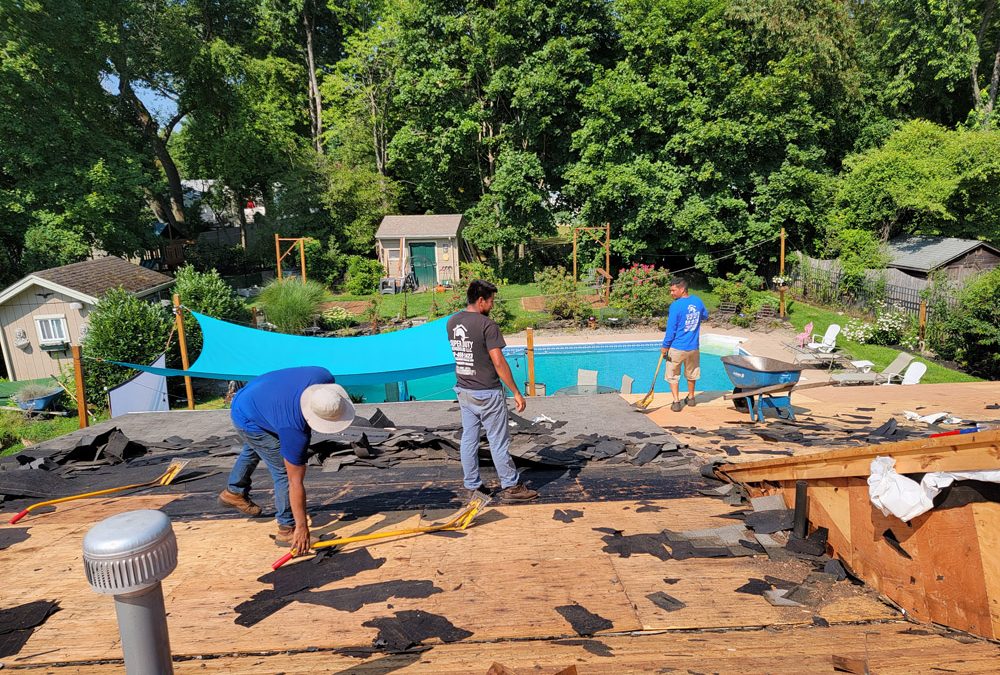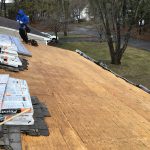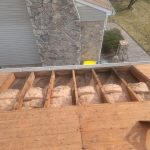Investing in a new roof is a significant decision, and understanding the warranty that comes with it is crucial for protecting your investment. A roofing warranty provides peace of mind by covering potential issues that may arise after installation. However, not all warranties are created equal, and it’s essential to know the specifics of your coverage to maximize its benefits. In this blog post, Super Duty Roofing will guide you through the different types of roofing warranties, what they cover, and how to ensure you get the most out of your warranty.
Types of Roofing Warranties
- Manufacturer’s Warranty
- Material Defects: This warranty covers defects in the roofing materials themselves, such as shingles, underlayment, and other components. It ensures that the materials used will perform as expected under normal conditions.
- Duration: Manufacturer’s warranties can range from 20 years to a lifetime, depending on the product. Premium roofing materials often come with longer warranties.
- Workmanship Warranty
- Installation Errors: This warranty covers issues that arise from improper installation of the roofing materials. Even the best materials can fail if not installed correctly, making this warranty crucial.
- Duration: Workmanship warranties typically range from 1 to 10 years, but some roofing contractors, like Super Duty Roofing, offer extended workmanship warranties for added peace of mind.
- Full System Warranty
- Comprehensive Coverage: A full system warranty covers both material defects and installation errors, providing the most comprehensive protection. It may also include additional components such as flashing, vents, and insulation.
- Duration: The duration of a full system warranty can vary, but it often aligns with the manufacturer’s warranty for the materials used.
What Roofing Warranties Cover
Understanding the specific coverage details of your roofing warranty is essential. Here are some common elements that warranties typically cover:
- Material Defects: Covers manufacturing defects in roofing materials that lead to premature failure.
- Workmanship Errors: Covers issues resulting from improper installation techniques, such as incorrect nailing or flashing errors.
- Labor Costs: Some warranties cover the labor costs associated with repairing or replacing defective materials. This can be a significant benefit, as labor costs can be substantial.
- Non-Prorated Period: Many warranties include a non-prorated period during which both materials and labor are fully covered. After this period, coverage may become prorated, meaning you’ll be responsible for a portion of the costs.
What Roofing Warranties Don’t Cover
It’s equally important to understand what your warranty doesn’t cover to avoid any surprises:
- Acts of Nature: Damage caused by natural disasters such as hurricanes, earthquakes, or severe storms is typically not covered. Separate insurance policies may be required for these events.
- Negligence: Issues arising from neglect, such as failing to perform regular maintenance or ignoring minor repairs, are usually not covered.
- Improper Use: Using the roof in ways not intended by the manufacturer, such as installing heavy equipment or walking on it excessively, can void the warranty.
- Alterations: Unauthorized modifications to the roof, including installing satellite dishes or skylights, may void the warranty if not done by a certified professional.
Maximizing Your Roofing Warranty Coverage
To ensure you get the most out of your roofing warranty, follow these tips:
- Hire a Certified Contractor: Choose a reputable and certified roofing contractor like Super Duty Roofing. Proper installation is crucial for warranty validity, and certified contractors are trained to meet manufacturer standards.
- Regular Maintenance: Perform regular maintenance to keep your roof in good condition. This includes cleaning gutters, removing debris, and inspecting for damage. Documenting maintenance activities can also be useful if you need to file a warranty claim.
- Prompt Repairs: Address any roofing issues promptly to prevent minor problems from escalating. Delaying repairs can lead to further damage and may affect your warranty coverage.
- Understand Warranty Terms: Thoroughly read and understand the terms and conditions of your warranty. Pay attention to coverage details, exclusions, and the process for filing a claim.
- Register Your Warranty: Some manufacturers require you to register your warranty after installation. Ensure you complete any necessary paperwork to activate your coverage.
Conclusion
A roofing warranty is a valuable asset that provides protection and peace of mind for homeowners. Understanding the different types of warranties, what they cover, and how to maintain your roof properly can help you maximize your coverage and ensure the longevity of your roof. Super Duty Roofing is here to guide you through the process, offering expert installation, maintenance, and support to help you get the most out of your roofing warranty. Contact Super Duty Roofing today to learn more about our roofing services and how we can help protect your home for years to come.
















